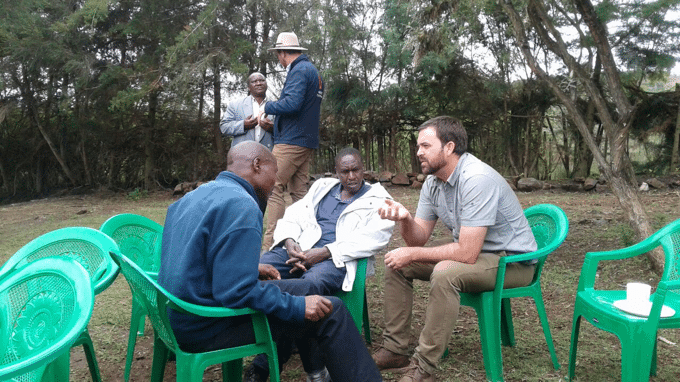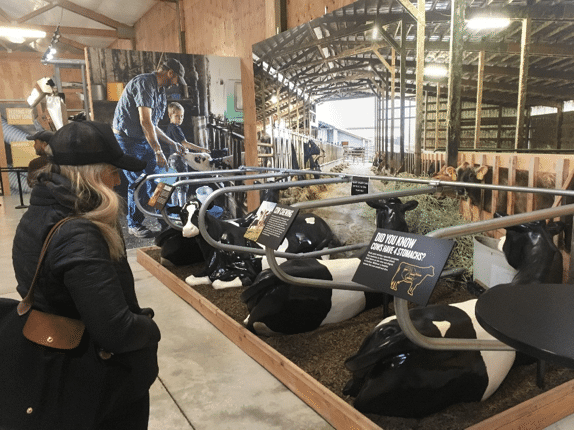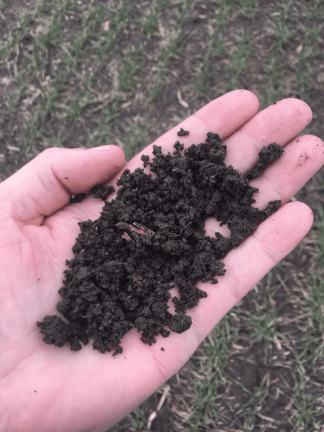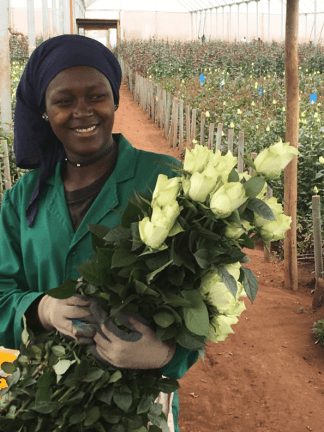38 days, 5 countries – the 2018 Africa Global Focus Programme in my words
The 2018 Nuffield Africa Global Focus Programme (GFP) was unrelenting and motivating to the core. This extended period of travel with 8 other international Nuffield scholars was nothing short of incredible – challenges would be laid down, preconceptions shattered and friendships forged.
After a whirlwind 8 day Contemporary Scholars Conference in The Netherlands, I set off on the Africa GFP, along with 8 other Nuffield scholars from Australia, Ireland, Scotland, Canada and New Zealand. Our journey started in the USA where we travelled through Oregon before spending three days in the capitol Washington DC. From there we dog-legged back across the Atlantic to Eastern Europe where we spent time in the Czech Republic and Ukraine. From there we finished with an extended period of travel in both Kenya and South Africa.
The USA
In the USA our journey started in Portland – a city famed for its quirky, avant-garde culture, iconic coffee shops, boutiques, farm-to-table restaurants and microbreweries. From Portland we traversed the state of Oregon visiting a wide range of farming businesses including producers and marketers of hazelnuts, oysters, wheat, beef and dairy amongst other produce.
Many of the dairy farmers we visited were doing it pretty tough in the face of an extended period of low commodity prices and it was a breath of fresh air to visit Tillamook County where the local dairy co-operative was standing out and really delivering for its farmers.
Tillamook is a high rainfall zone in Western Oregon and is home to the Tillamook County Creamery Association – a dairy co-operative particularly famous for its quality cheeses. Branding their products under the ‘Tillamook’ brand name, their members now receive payouts significantly higher than standard American commodity prices. Something that really stood out for me during our visit to the area was the Tillamook Dairy Visitor Centre. This facility is absolutely well worth visiting for anyone in the area and provides a unique space for rural and urban folks to mix and learn. The facility has been designed with the help of the farmers to give visitors an inside look, “taking you to the place where it all begins: the farm”. It was a terrific experience and something I think we could learn a lot from with regards to providing spaces for an increasingly urban New Zealand public to connect with our farming roots.
Another observation from my time in the United States was the broad sense of apprehension from within the rural sector with regards to international trade. The stereotypical upbeat and brash American was nowhere to be seen, as we met a succession of farmers, growers and industry representatives openly apprehensive about the future. Much of this centred around concerns at expected retaliation from China as a result of recent US trade policy and tariff announcements. We also heard numerous comments – largely from industry and government representatives – expressing concern at the reasoning behind the US exit from the TPPA. They expressed real concerns about the potential impact that this move would have on US trade with countries such as Japan and Vietnam, and acknowledged that countries such as Australia and New Zealand were in prime position to now take advantage.
Eastern Europe
Ukraine has long been known as the ‘breadbasket of Europe’ and now I know why. The potential for growing crops such as wheat in the Ukraine is immense. A combination of the famous black soils and significant foreign investment has seen large farming businesses (often managed by foreign nationals) thrive. Driving through this country we could travel days without seeing a fenced paddock as we passed thousands of hectares dedicated to cropping.
Africa
Most of us have heard in some form about the growing food security challenges associated with a global population expected to reach ~9.8 billion by 2050. The central role Africa has to play in this puzzle was one of the reasons I was so keen to join this particular GFP. What is the current reality and what opportunities does this present for New Zealand given that Africa is a net food importer and that more than half of the projected global population growth by 2050 is expected to occur in the continent? During our time in both Kenya and South Africa we saw two unique nations with significant agricultural potential but with quite different historical and political contexts.
Our time in Kenya was really quite inspiring. Here was a country seeing significant investment in infrastructure and a government expressing a desire to use science and technology to empower farmers as part of efforts to achieve food security and nutrition. We saw a broad range of investment into the agriculture sector, from small-scale and subsistence farming right through to large, diverse farming businesses employing hundreds of staff. The agriculture sector in Kenya looks strong and is positioning itself well for growth. The most significant challenges to this growth appear be around climate change, population growth, and environmental constraints (particularly soil health and erosion).
Our visit to South Africa was equally intriguing and offered us unique insights into a country with an incredibly complex and turbulent history. Throughout our brief time there I found myself constantly wrestling with the contradiction of incredibly entrepreneurial and successful businesses flanked by such desperate poverty. Anyone who has had their ear to the ground with South African politics over the last year will know there are some significant challenges facing the agricultural sector as part of a land reform process, part of which is proposing the confiscation of ‘white-owned’ land without compensation. Almost without exception, the farmers and growers we met expressed optimism at how this process would eventuate, but I couldn’t help but think about how this was influencing farming investment for both the medium and long term and what this would mean for the country’s economy.
So what are the opportunities for New Zealand agriculture in Africa? We need to be there, now. We need to be building our brand and presence and recognising the growing importance and potential of this region and the significant opportunities associated with trade, investment and technology transfer.
Before signing off I’d just like to express my gratitude to the many individuals and organisations who have supported me during this time. To the sponsors of the Nuffield New Zealand scholarship and my employers Ravensdown for supporting me wholeheartedly in this journey; and to my family – in particular my parents, three children and amazing wife Jessie who have all made this possible.
For more updates on my Nuffield journey as I get into my individual study, feel free to follow my blog at foodagriculture.wordpress.com and on twitter at @turi_mcfarlane.





























